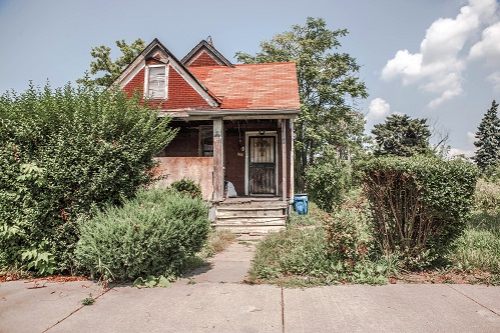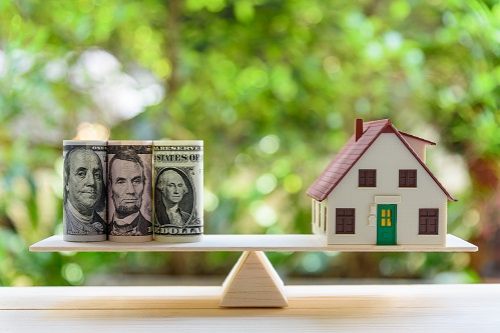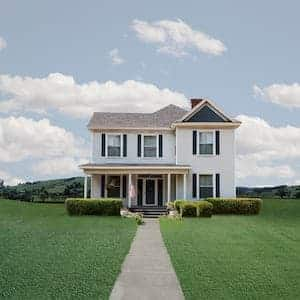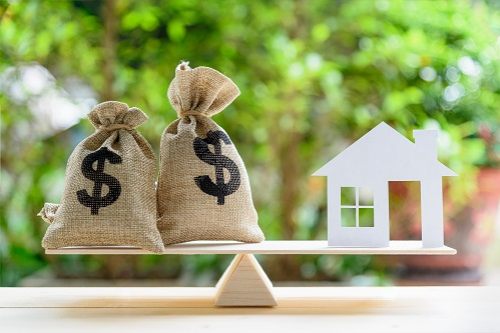- What is builder's risk insurance?
- Do I need homeowners insurance during construction?
- Who needs builder's risk insurance?
- What does builder's risk insurance cover?
- What isn't covered by builder's risk insurance?
- How much does builder's risk insurance cost?
- Factors that determine the cost of builder's risk insurance
- Builder's risk insurance companies
- How long does home building insurance coverage last?
- Builder’s risk vs. homeowners insurance
- FAQ:
What is builder's risk insurance?
Builder’s risk is home construction insurance to protect you and your home during construction. A construction project requiring builder's risk insurance can be anything from a new home build to a major renovation.
Construction lenders often require builder's risk insurance, sometimes called construction loan insurance, home building insurance, or renovation insurance.
Do I need homeowners insurance during construction?
Yes, if you own the lot. If you're having a custom home built, you'll need your own homeowners insurance policy.
"Before the first shovel hits the ground on your home, you need to get your homeowners insurance in place so that you have liability coverage," says Saine. "The biggest risk of building a home is your liability in the case of a construction site accident."
Home buyers should purchase a home insurance policy with liability coverage in addition to the builder's risk insurance policy, says Brunetto. Homeowners insurance will also provide coverage in case of fire or storm damage.
Many home insurance companies offer a homeowners policy that’s specifically designed for homes under construction.
If this is your first home, review insurance for new homeowners for tips before you purchase.
"Liability coverage is critical for a construction site because of the risk that someone working on the site or a child or a visitor to the site could be injured," she says. "You should take responsibility to inspect the site and make sure your builder is adequately protecting the site, but you also need to buy insurance to protect your assets in case you are sued."
Saine says most people purchase $300,000 of liability coverage, but other levels are available.
Brunetto says that you may want to buy umbrella insurance for extra liability protection, particularly if you have significant assets.
Who needs builder's risk insurance?
Anyone who has a financial interest in a construction project needs builder's risk insurance. The following is a list of some of the people to add to your insurance policy:
- Owner of property
- Lenders
- Architects
- General contractor
- Subcontractors
"Whether you need insurance depends on your contract," says Carol A. Brunetto, a State Farm insurance agent in Bethesda, Maryland.
"Sometimes, the general contractor is responsible for insurance, while other contracts say the homeowner needs to purchase builder’s risk insurance."
In most cases, you won't need a policy if you don't own your property yet or your contractor does have coverage. Be sure to ask your contractor what type of insurance they are carrying and what the limits are.
Brunetto says new home buyers should review the purchase contract to make sure they aren't on the hook for insuring home construction.
What does builder's risk insurance cover?
Builder's risk insurance covers the increased risks associated with construction. It typically covers on-site equipment, materials, and supplies.
Covered perils vary, but most builder's risk policies cover damages or loss resulting from the following:
- Explosion or fire
- Hail
- Lightning
- Theft
- Vandalism
- Vehicle or aircraft collision
For example, if your contractor drops off a load of lumber and it's stolen, your builder's risk policy will cover the loss. If vandals leave graffiti and other damage on the property, that's covered as well.
What isn't covered by builder's risk insurance?
Builder's risk insurance doesn't cover everything, including:
- Personal liability
- Personal property
- Flood
- Earthquake
"This insurance doesn't provide liability coverage or any protection for the home's contents since there typically won't be any personal possessions at the construction site," says Benjamin Saine, product manager for homeowners insurance with USAA Insurance in San Antonio, Texas.
Your contractor still needs to have their own general liability insurance policy to cover things like bodily injury and property damage for which they are responsible.
You also need to ensure you have the right liability coverage; empty homes under construction can be tempting for kids looking to explore or teens seeking a hangout spot, and someone could get hurt.
Additionally, many builder’s risk policies list exclusions for things like earthquakes, floods, acts of terrorism and war, employee theft, mechanical breakdowns, workmanship, fault design, and wear and tear.
How much does builder's risk insurance cost?
The average cost of construction insurance can be anywhere from 1% to 4% of what is budgeted for construction, depending on multiple factors. Typically, the amount of insurance you need to purchase depends on the estimated rebuilding cost of your completed home, based on the size, the finishes and the materials to be used, says Saine.
Saine says most insurance companies will steeply discount the premiums because the home hasn't been completed. Once your home is complete, with flooring and appliances in place, you need to contact your insurance company to convert your insurance to a standard home insurance policy.
Factors that determine the cost of builder's risk insurance
Just as the details of a construction project can significantly impact the quality of the build, they also influence the price you pay for the insurance. Below, we list some factors that affect a builder's risk insurance quote.
- Project type. Different types of projects can affect how much builder’s risk coverage costs. The most common types are new construction, remodeling excluding the existing structure, installation, and remodeling including the existing structure.
- Location. Location is an important factor in builder's risk insurance quotes. This is because different locations have different risks. Areas prone to wildfire, hail damage, tornados, hurricanes, hail, or high winds will have higher builder's risk insurance costs.
- Construction type and materials. The better the quality of construction, the lower the risk of damage. For example, a project that is built with fire-resistant materials is likely to be rated more favorably. On the other hand, wood-frame construction (the most common construction type for residential areas) catches fire easily and is not as sturdy. Additionally, higher-end materials, like granite countertops, are more expensive and, therefore, increase the cost of insurance.
- Expected completion date. The other key factor that determines how much builder's risk insurance costs is the expected date of completion of your project.
Who pays for builder's risk insurance?
You’ll need to discuss how the insurance policy will be handled with your builder. In some cases, it’s built into the construction cost, and the builder pays for it while passing the cost onto you on the overall invoice.
In other cases, the builder may recommend a policy, but you must buy it and pay for it. In that case, it’s wise to shop around.
If your lender requires construction loan insurance, they may require you, the homeowner, to pay for the policy. However, this varies by lender.
Builder's risk insurance companies
Many major insurance companies sell home building insurance. Here are a few to get you started:
- The Hartford
- Nationwide
- State Farm
- AIG
- Liberty Mutual
- Chubb
- Travelers
- Progressive
Your builder will likely be able to make a recommendation.
How long does home building insurance coverage last?
Policies are generally written for 9 to 12 months. Most can be renewed if there are construction delays, says Saine, but the insurance company will usually assess the project to make sure progress is being made on the home.
Builder’s risk vs. homeowners insurance
Homeowners insurance and builder’s risk insurance have some differences. Homeowners insurance is for completed homes, while builder's risk insurance is for homes still under construction. Insuring a house built from the ground up differs from insuring a house already built, as each requires different coverage.
Homeowners insurance protects the structure of your home, covers its contents, provides coverage for additional living expenses, and offers liability protection in case someone is injured on your property. On the other hand, the builder's risk insurance covers the property while it is under construction and does not include personal liability protection. The builder should provide general liability insurance to protect both the builder and the homeowner.
FAQ:
Is builder's risk insurance required?
Yes, you'll require some form of builder's risk insurance while building a house. The company that is financing your home construction will require that the project be insured. This may be a policy provided by you or the builder.
When is builder's risk insurance required?
Builder's risk insurance needs to be in place at the time of closing on the loan to build your home, as the lender will require it.
How much builder's risk insurance do I need?
You will need enough insurance to cover all of the construction materials as well as liability. The lender financing the construction will provide you with the requirements for insurance; if your builder is handling the insurance, they will ensure you have the right coverage.




